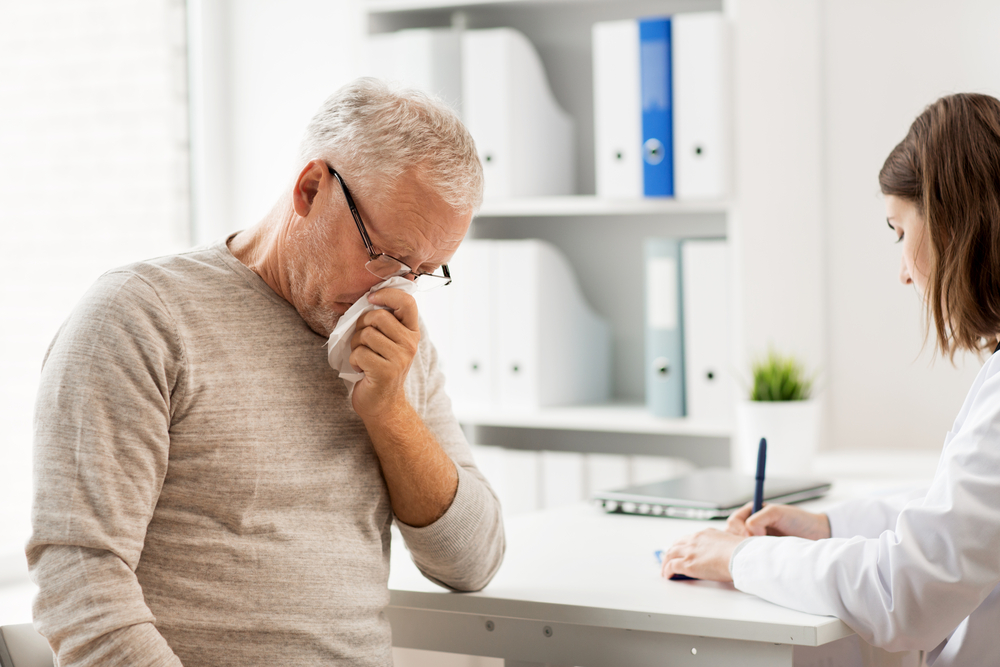Countless chemicals and toxic inhalants filled the air in Lower Manhattan following the terrorist attacks on the World Trade Center, making respiratory illnesses the most common health conditions that 9/11 responders and survivors face. Thousands who were exposed to the dust cloud in the days and weeks after 9/11 developed various injuries and illnesses in connection with the airways, lungs, and respiratory tracts — and continue to suffer from the adverse effects of these conditions today.
If you were present in the NYC Exposure Zone in the immediate aftermath of September 11th, 2001, and developed a respiratory illness, you may be entitled to monetary compensation from the September 11th Victim Compensation Fund.
Common 9/11 Respiratory Conditions
The harmful inhalants in the 9/11 dust cloud, including pulverized alkaline silica dust and chemicals from the burning building materials, entered the airways of exposed responders and survivors. Many of these responders and survivors experienced decreased lung function for several years or more. Smokers and those with pre-existing respiratory conditions were hit the hardest by 9/11 respiratory-related illnesses.
Common respiratory conditions suffered by 9/11 responders and survivors include:
- Upper respiratory disease
- Lung cancer
- Asthma
- Acute rhinitis
- Chronic rhinosinusitis
- Acute cough
- Reactive airways dysfunction syndrome
- Chronic nasopharyngitis
- Chronic laryngitis
- Upper airways hyperreactivity
- Chronic respiratory disorder
- COPD
- Sleep apnea
Respiratory illnesses appear most often in responders who worked at Ground Zero and in the surrounding area for an extended period and experienced more exposure to the toxins. Studies show that FDNY workers who arrived at Ground Zero the morning of September 11, 2001, were six times more likely to develop airway hyperreactivity over the following six months compared with those who arrived later.
While the impact of these conditions could have been reduced with masks and other personal protective equipment, responders were provided with minimal to no equipment. As a result, respiratory diseases linked to the dust cloud are among the most frequently reported 9/11-related health conditions.
VCF Compensation for 9/11 Respiratory Illnesses
If you are a responder or survivor who developed a respiratory illness linked to the 9/11 toxic dust cloud, you may be eligible to receive a monetary award from the September 11th Victim Compensation Fund. The VCF compensates responders and survivors who satisfy the eligibility criteria and have been diagnosed with respiratory illnesses certified by the WTC Health Program.
This compensation includes monetary recovery for both economic and noneconomic losses. An award for economic loss compensates for monetary losses such as loss of earnings, employment benefits, and the out-of-pocket costs incurred in connection with a 9/11 illness.
A non-economic loss award is meant to compensate for the pain and suffering a responder or survivor experienced due to the illness. The maximum VCF compensation for a non-economic loss that can be awarded for a respiratory condition is $90,000, based on the severity of the condition. A claimant who can establish that their respiratory condition impedes their ability to work and participate in their daily activities will be issued a higher award than someone with a mild condition.
Contact a New York City 9/11 VCF Attorney
If you’re an eligible responder or survivor who suffers from a 9/11 respiratory condition linked to the toxic dust cloud, you may be eligible to receive an award from the VCF. However, filing a claim can be confusing, so it’s best to have the representation of a knowledgeable 9/11 VCF attorney who can help you obtain the maximum compensation you deserve for your illness.
The 9/11 Victim Compensation Fund attorneys at The Dearie Law Firm, P.C. have represented claimants and their families in 9/11 VCF claims for over a decade. For a free consultation, contact us today.

